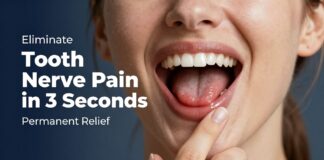Chemical in Personal Care Products Linked to Early Puberty
The age at which girls hit puberty has been decreasing over the years, and researchers have been struggling to understand why. Recent studies have pointed to a compound found in a wide range of everyday products as a potential culprit for triggering early puberty in children. This compound, known as musk ambrette, is commonly found in cosmetics, air fresheners, detergents, and soaps, among other items. Dr. Natalie Shaw, a pediatric endocrinologist at the National Institute of Environmental Health Sciences in Durham, North Carolina, noted that this research marks the first time scientists have explored the impact of environmental chemicals on the brain as a possible explanation for the rise in early puberty.
The Effects of Early Puberty
Early puberty, defined as occurring before age 8 in girls and age 9 in boys, can have long-lasting health implications well into adulthood. Individuals who experience early puberty may face increased risks of developing conditions such as breast cancer, diabetes, and heart disease. Additionally, early puberty can lead to stunted growth in both girls and boys. A recent study from the Harvard T.H. Chan School of Public Health revealed that 15.5% of girls began menstruating before the age of 11, with 1.4% starting their periods before the age of 9.
Previously, factors such as obesity, diet, socioeconomic status, and exposure to substances like phthalates have been suggested as potential contributors to early puberty. While excess weight has been linked to early puberty in young girls, Dr. Shaw emphasized that not only overweight or obese individuals are affected. She highlighted the significance of environmental factors in the timing of puberty, indicating that genetics alone cannot account for the rapid changes observed.
Identifying the Culprit: Musk Ambrette
In their quest to pinpoint a compound that could influence the onset of puberty, researchers examined over 10,000 compounds, including pharmaceuticals, environmental chemicals, and dietary supplements. Among these compounds, musk ambrette emerged as a potential candidate that children are likely exposed to. Musk ambrette, a synthetic form of the fragrance, has the ability to interact with a receptor in the hypothalamus that triggers the release of GnRH, a hormone crucial for sexual development and hormone production.
Musk ambrette is commonly used in inexpensive or counterfeit fragrances and various scented personal care products. Surveys have detected traces of this compound in wastewater and the bodies of freshwater fish, indicating widespread exposure. Further investigations conducted by the research team demonstrated that musk ambrette stimulated the production of GnRH in both human hypothalamic cells and zebrafish larvae, shedding light on its potential impact on puberty.
Future Implications and Recommendations
While the study on musk ambrette represents a significant advancement in understanding the factors influencing early puberty, Dr. Shaw emphasized that further research is necessary. Future studies will focus on assessing the effects of musk ambrette on mammals, such as rodents, and analyzing blood levels of the compound in humans. In the meantime, Shaw advised parents to scrutinize ingredient lists for musk ambrette in cosmetics, fragrances, and household products used by their children to potentially prevent early puberty.
Dr. Apisadaporn Thambundit, a pediatric endocrinologist at UCLA, acknowledged the importance of the study but cautioned against drawing definitive conclusions at this stage. While musk ambrette poses a potential risk, Thambundit expressed surprise that phthalates, another group of chemicals linked to early puberty, were not prominently featured in the research. Dr. Jasmine McDonald, an epidemiology expert at Columbia University, commended the study for its innovative approach in identifying compounds that could impact puberty timing without preconceived notions.
Taking Action: A Proactive Approach
Although banning or restricting musk ambrette based solely on this study may be premature, families can take proactive steps to minimize exposure to potentially harmful compounds. Dr. McDonald suggested opting for scent-free products, such as lotions and body washes, to reduce the intake of fragrances. By making simple adjustments to their daily routines, individuals can limit their contact with substances that may influence puberty timing.
In conclusion, the research on musk ambrette and its potential impact on early puberty serves as a critical stepping stone in unraveling the complex factors contributing to this phenomenon. By delving into the role of environmental chemicals in triggering puberty, scientists are paving the way for future investigations and interventions to safeguard children’s health and well-being. As the scientific community continues to explore the intricate mechanisms underlying early puberty, parents and individuals can stay informed and make informed choices to promote healthy development and hormone regulation.


















